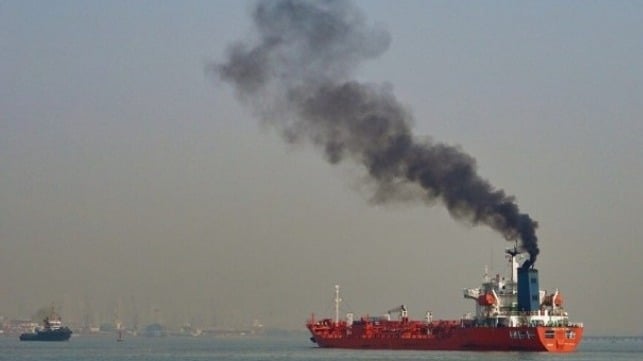Op-Ed: Shipping Emissions are Rising Despite Industry Commitments

The latest emissions data confirms what many of us feared: container shipping has just recorded its worst environmental performance to date.
Carbon emissions from the sector have surged dramatically, with figures showing a 14 percent rise globally and an even more shocking 45 percent spike in the EU. That’s not a long-term projection. That is what is happening right now.
This surge is largely the result of widespread rerouting caused by the ongoing conflict in the Red Sea. As ships continue to avoid the Suez Canal and travel thousands of miles further around the Cape of Good Hope, emissions have climbed steeply.
But blaming geopolitics could be seen as a convenient scapegoat. The issue is the industry’s lack of foresight and falling back on familiar routes when faced with adversity, with little thought to agility, innovation, or urgency. In a marketplace that is saturated with talk of sustainability, cleaner shipping and green fuels, it is crucial owners and operators keep this in the forefront of their minds when faced with external disruption factors.
We continue to talk about decarbonization as though it's something we are working towards. The truth is, when tested, we are not ready. Not operationally. Not technologically. Not mentally.
The emissions spike we’re seeing today is the result of years of underinvestment in meaningful, near-term solutions. There is no shortage of reporting tools, green fuel pilots or glossy ESG statements. But when it comes to actual day-to-day operational change, we are years behind where we should be.
Fuel efficiency is too often misunderstood, conflated with vessel performance rather than the true efficiency of the fuel itself. This confusion stems from decades-old habits in which fuel consumption was treated as a closed topic, held back by inconsistent reporting and outdated systems. That mindset has no place in a modern boardroom. The next phase of fuel innovation must be built on collaboration, science, transparency and verifiable results.
The frustrating part is that better options already exist. Fuel can be made to work harder, cleaner and more efficiently - right now. At Fuelre4m, we’ve developed a fuel treatment technology that restructures fossil fuels at a molecular level. It helps ships extract more energy from every kilogram or tonne of HFO, LSFO, VLSFO or biodiesel, cutting waste and reducing emissions.
Initial results show up to 20 percent better fuel performance, and marked reductions in greenhouse gases, sulfur oxides and nitrogen oxides. It’s not a future fuel. It’s a practical improvement to the ones the industry already relies on.
So why are we not seeing widespread adoption? Because shipping is still stuck in the false belief that unless a solution is total, it’s not worth doing. That’s why we keep chasing unproven alternatives while ignoring effective tools already in front of us.
We say we want to decarbonize. But too often, we mean we’ll do it later - when it’s easier, cheaper or someone else has gone first. In the meantime, emissions rise. Costs rise. Public and regulatory scrutiny intensify. And the industry keeps hoping it will all somehow work out.
This is not a call to abandon long-term ambition. It is a call to act with purpose and meaning. Burning less fuel, reducing our exposure to carbon pricing, and cutting avoidable waste should not be controversial. It should be standard.
The latest data should be the final warning. What will it take for shipping to wake up? Another war? A price shock? A regulatory crackdown?
The tools exist. The technology exists. The urgency exists. What’s missing is the will. And that is entirely on us.

that matters most
Get the latest maritime news delivered to your inbox daily.
Rob Mortimer is CEO of Fuelre4m, a Dubai-based firm that uses fuel technology to cut emissions.
Top image: Cyprien Hauser / Flickr, CC BY-ND 2.0
The opinions expressed herein are the author's and not necessarily those of The Maritime Executive.
